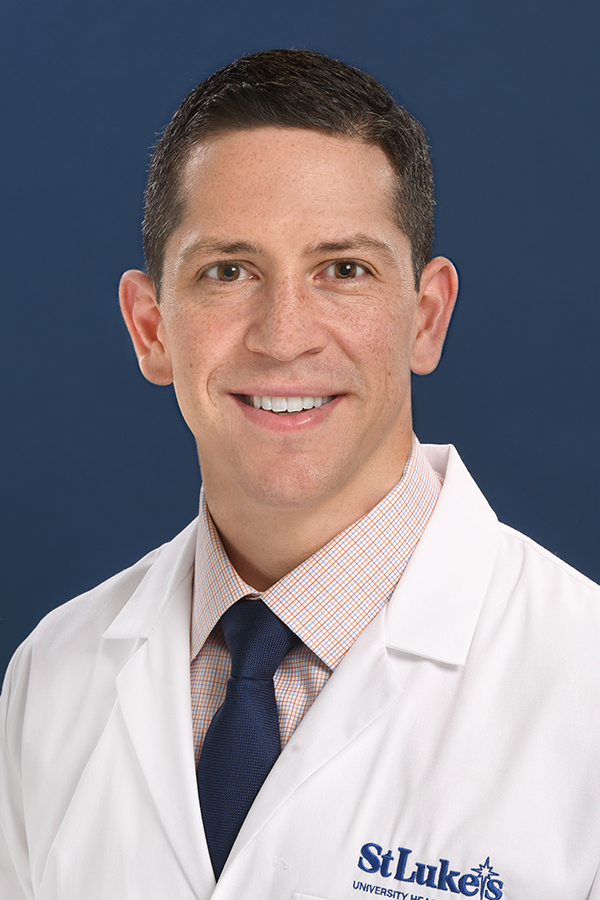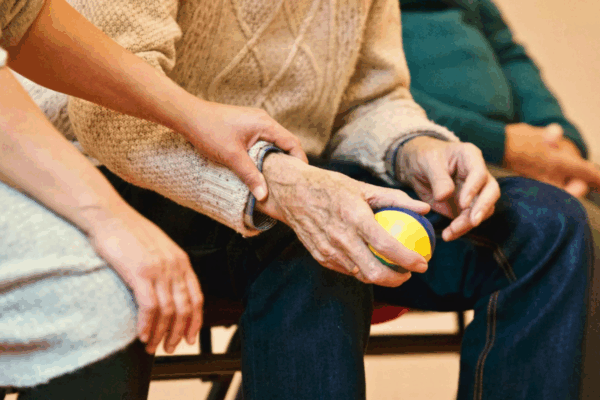Using your hands is essential to your daily activities, from dressing in the morning to brushing your teeth at night. As we age, however, both men and women start to lose hand function, especially after the age of 65.
Hand surgeon David Kirby, MD, of St. Luke’s Orthopedic Care, said there are many things you can do to stop, and even reverse, loss of hand function. But it’s vital to seek help early for issues with hands, wrists, and arms.
Dr. Kirby specializes in diagnosing and treating conditions of the hand and arm from the elbow down—from complex fractures to everyday irritations like tendonitis. The conditions he treats include trigger finger, tennis and golfers’ elbow, carpal tunnel syndrome, de Quervain tenosynovitis, Dupuytren’s contracture, nerve conditions, and arthritis of the wrist, thumb, and fingers.
Dr. Kirby is one of several hand surgeons with St. Luke’s Orthopedic Care, which has many offices throughout the greater Lehigh Valley and western New Jersey.
“If someone has an ache, pain, numbness, or any sort of irritation in the hand or forearm, they can come to me or one of my colleagues, and we’ll figure it out,” he said. “The earlier a physician diagnoses the condition and begins treatment, the better the chance of recovery.”
Several factors contribute to age-related loss of hand function. These include muscle loss, degenerative joint disease, and changes in the nervous system. Degenerative joint diseases, such as osteoarthritis and rheumatoid arthritis, and age-related changes in brain connectivity, also have an effect.
Dr. Kirby joined St. Luke’s in 2024 after completing medical school at Johns Hopkins University in Baltimore, residency at NYU Hospital for Joint Disease-Orthopedic Institute in New York, and a fellowship at Thomas Jefferson University in Philadelphia. Born and raised in Missouri, he is happy to be practicing in the greater Lehigh Valley.
“I grew up in Missouri, and not in a major city, but very much a rural area,” he said. “Geographically, it’s very different from this area, but demographically, it’s very similar. Truthfully, that’s always what I wanted—to serve a community like where I grew up. I had the opportunity to receive some of the best training, which happened to be in major cities, but now I’m getting back to my roots with this job.”
Dr. Kirby went to college to be a plant biologist and researcher. He worked on a project to modify corn and wheat cereal grains to make them more nutritious for cattle, lower methane gases, and decrease feed costs. However, a contamination in his lab caused his entire two-year project to be deleted in a week.
At the same time, he was working as a secretary for a pediatrician. She encouraged him to become a doctor when she heard about what happened. He started shadowing her and fell in love with medicine.
“So, I went to medical school to be a pediatrician as I enjoyed working with kids and working with her as she helped people in the community,” he said.
Then, during medical school, he worked with a pediatric scoliosis surgeon who took him under his wing.
“He actually let me do a surgery the very first day, a very simple case, and I fell in love with it,” he said. He described it as being in a flow state, where you’re absorbed and intensely focused on something.
“In a flow state, you start something, and it feels like it’s been five minutes when it’s actually been two hours; it was that kind of thing,” he said. “After that, I wanted to do orthopedics, so I followed my passion.”
Dr. Kirby found hand surgery particularly fulfilling because of its complexity. He said every patient has a problem that needs to be solved. Finding the cause and how to manage it is challenging, but seeing his patients improve is what he loves about hand surgery.
For example, during his training, his team treated an 18-year-old patient who sustained a wrist fracture in a sports injury. Untreated, the injury would have caused debilitating arthritis in his hand. Dr. Kirby’s team treated it by using a part of a bone in the hand to reconstruct the injured bone.
“It’s cases like that where you can truly see the impact of your work,” he said. “He was 18 years old, and he would have developed debilitating arthritis but instead had a fully functioning wrist.”
To schedule an appointment with a St. Luke’s Orthopedic Care hand surgeon, call 484-526-1735.






